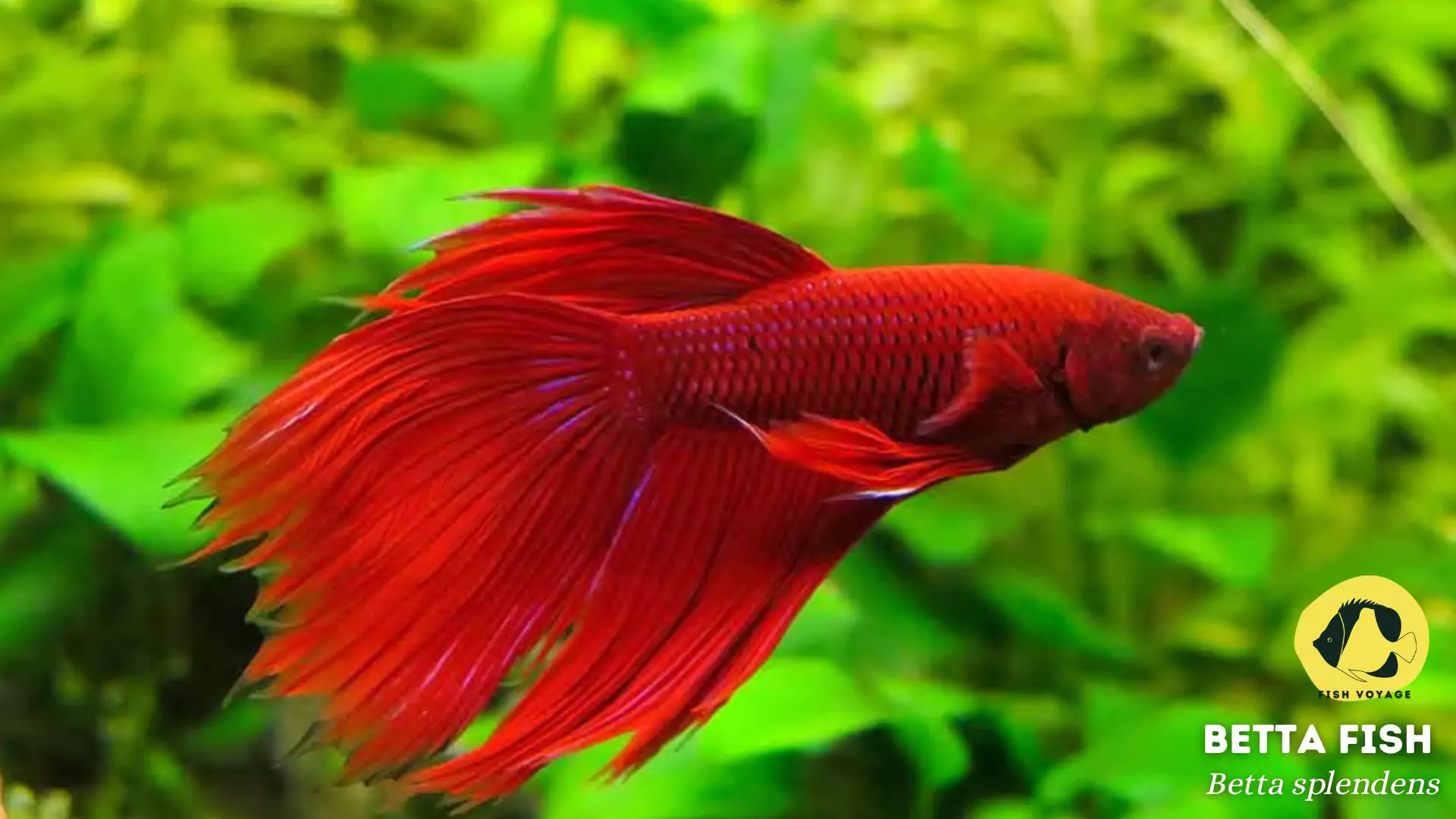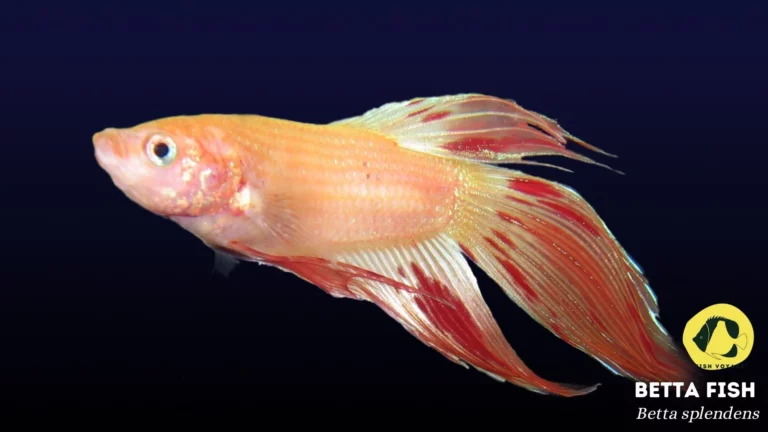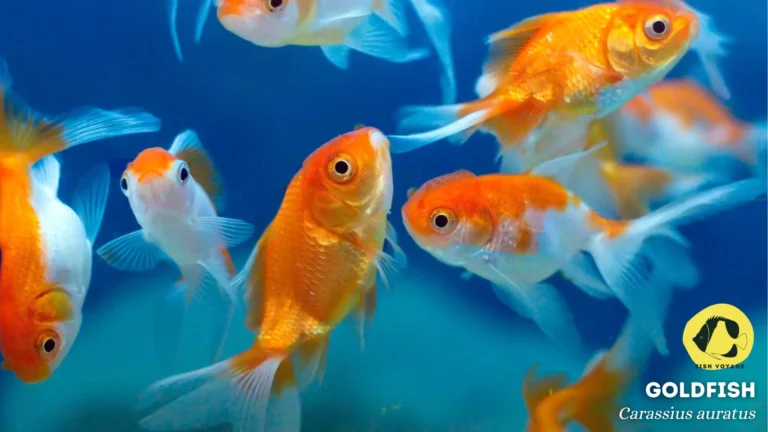Betta Fish Dying Signs: Guide to Recognition, Prevention, and Community Support

Betta fish, also known as Siamese fighting fish, have captured the hearts of aquarium enthusiasts worldwide with their vibrant colors and distinctive personalities. Renowned for their long, flowing fins and striking hues, these fish have become popular additions to home aquariums. Despite their resilient nature, Betta fish, like any living creature, can face health challenges.
As responsible caretakers, it is crucial to be attuned to the subtle and not-so-subtle signs that may indicate distress or illness in these captivating aquatic companions. In this comprehensive guide, we will delve into the nuanced indicators that your Betta fish might be in trouble, offering insights into their well-being and the steps you can take to ensure a thriving aquatic environment. Let’s explore the world of Betta fish care and understand the language they use to communicate their needs.
Overview of Betta Fish Health
In fostering the well-being of your Betta fish, understanding their general characteristics is paramount. A healthy Betta fish exhibits vibrant and well-defined colors, with erect and flowing fins. Its movements are graceful, and it engages with its surroundings in an alert and responsive manner. Beyond appearances, maintaining an environment conducive to their flourishing health is essential. Adequate water quality, including the right pH levels and temperature, plays a pivotal role in supporting their immune systems and overall vitality. Betta fish, known for their labyrinth organs allowing them to breathe air directly, thrive in well-filtered water.

The significance of an appropriately sized tank should not be underestimated. Betta fish, while possessing a labyrinth organ, still require ample space to swim freely. A spacious tank not only provides physical exercise but also reduces territorial stress. Stress, in fact, is a common adversary for Betta fish health. Changes in water conditions, abrupt alterations in surroundings, or the presence of aggressive tank mates can induce stress. Recognizing and mitigating these stressors are integral aspects of responsible Betta fish care.
In this guide, we will explore the delicate balance between environmental factors and the health of your Betta fish, offering insights into creating a harmonious habitat for these captivating aquatic companions. Stay tuned as we unravel the key components that contribute to the overall well-being of your Betta fish.
Common Betta Fish Dying Signs
Lethargy and Changes in Swimming Behavior
Recognizing changes in your Betta fish’s activity level and swimming patterns is crucial in identifying potential health issues. A normally active Betta may become lethargic, spending more time at the bottom of the tank or displaying a lack of interest in its surroundings. Conversely, erratic swimming behaviors, such as uncontrolled darting or difficulty maintaining balance, can also signal distress. By closely observing these subtle shifts, you can intervene promptly to address underlying concerns.
Loss of Appetite or Sudden Change in Eating Habits
An abrupt loss of interest in food or a noticeable change in eating habits can be indicative of various health issues in Betta fish. Whether it’s refusal to eat, spitting out food, or struggling to approach the feeding area, these signs warrant attention. Monitoring their feeding behavior allows caretakers to detect potential problems early on and take appropriate measures, ensuring the nutritional needs of the Betta fish are met.
Changes in Physical Appearance (Faded Colors, Lesions, etc.)
Betta fish are renowned for their vibrant and distinctive colors. Any departure from their usual brilliance, such as faded or dulled hues, may signal an underlying problem. Additionally, lesions, sores, or abnormalities on their fins or body are concerning indicators. This section will guide you in recognizing these visual cues, empowering you to promptly address issues affecting the physical health and appearance of your Betta fish.
Breathing Difficulties and Unusual Gill Movement
Efficient respiratory function is paramount for Betta fish, which possess labyrinth organs to breathe air directly. Signs of respiratory distress, such as rapid or labored breathing, flared gills, or unusual gill movement, are potential red flags. This section will delve into the respiratory aspects of Betta fish health, aiding you in identifying and addressing challenges related to their breathing, ensuring optimal oxygen exchange in their aquatic environment.
By being attuned to these common Betta fish dying signs, you equip yourself with the knowledge needed to intervene promptly, potentially saving your aquatic companion from serious health complications. Stay informed, stay vigilant, and foster the well-being of your Betta fish with confidence.
Environmental Factors
How Water Quality Impacts Betta Fish Health
The cornerstone of Betta fish well-being lies in the quality of their aquatic environment. Water, the very essence of their habitat, can either be a source of vitality or a harbinger of health issues. Imbalances in parameters such as ammonia, nitrites, and nitrates can lead to stress and diseases in Betta fish. In this section, we’ll explore the delicate chemistry of their aquatic home, emphasizing the critical role of pristine water quality in promoting the health and longevity of Betta fish.
Temperature and pH Considerations
Betta fish are native to the warm waters of Southeast Asia, making temperature an influential factor in their overall health. Fluctuations outside their preferred range can compromise their immune systems and stress levels. Similarly, the pH level of the water profoundly impacts their well-being. This section will guide you through the optimal temperature and pH considerations for Betta fish, empowering you to create a stable and comfortable environment that mimics their natural habitat.
The Role of Adequate Filtration and Regular Tank Maintenance
A well-functioning filtration system is the unsung hero of a Betta fish’s home. It not only removes harmful substances but also ensures a stable and oxygenated environment. Regular tank maintenance, including water changes and substrate cleaning, is equally pivotal. This section will delve into the symbiotic relationship between adequate filtration and routine tank upkeep, elucidating how these practices contribute to maintaining optimal water quality and fostering a thriving habitat for Betta fish.
Understanding and managing the environmental factors that impact Betta fish health is a cornerstone of responsible aquatic stewardship. By implementing best practices for water quality, temperature, and maintenance, you become a guardian of their well-being, providing an environment in which they can flourish. Join us as we unravel the intricacies of creating a harmonious aquatic haven for your Betta companions.
Disease and Parasites
Overview of Common Betta Fish Diseases
While Betta fish are known for their resilience, they are not immune to health challenges. Understanding common diseases is paramount for proactive care. This section will provide an insightful overview of prevalent Betta fish diseases such as fin rot, ich, and velvet. By recognizing the symptoms early on, you can take swift action to safeguard the health of your aquatic companions. Join us in exploring the nuances of these diseases and how they manifest in Betta fish.
How to Identify Symptoms of Diseases
A vigilant eye is the first line of defense against potential health issues in Betta fish. This segment will guide you through the subtle cues and overt signs that may indicate the presence of diseases. From changes in behavior to physical abnormalities, understanding the symptoms is crucial for timely intervention. Equip yourself with the knowledge to detect and interpret these signals, allowing you to address potential health concerns with confidence and precision.
Preventative Measures and Treatment Options
Prevention is the cornerstone of Betta fish health. This section will outline proactive measures to reduce the risk of diseases, including maintaining optimal water conditions, providing a balanced diet, and minimizing stressors. In the unfortunate event that a disease does strike, a comprehensive guide to treatment options will be explored. From medicated baths to quarantine practices, you’ll gain valuable insights into restoring the health of your Betta fish. Join us as we delve into the preventive strategies and treatment modalities that form the pillars of a robust health care regimen for Betta fish.
Embark on a journey to understand the intricacies of Betta fish diseases, from identification to treatment. By arming yourself with knowledge, you become a vigilant guardian, ensuring the well-being of your aquatic companions. Join us as we navigate the waters of disease prevention and treatment, fostering a healthy and thriving environment for your Betta fish.
Stress Reduction and Prevention
Importance of Providing a Stress-Free Environment
The well-being of Betta fish is intricately tied to the stress levels in their environment. In this section, we’ll delve into the profound impact of stress on Betta fish health and explore how a stress-free habitat is essential for their overall vitality. By creating a tranquil and secure environment, you not only enhance their quality of life but also mitigate the risk of stress-related health issues. Join us as we unravel the keys to fostering serenity in the aquatic world of Betta fish.
Proper Acclimatization to New Surroundings
Betta fish, like many aquatic species, can be sensitive to changes in their surroundings. Improper acclimatization can induce stress, compromising their immune systems. This segment will guide you through the art of introducing Betta fish to new environments seamlessly. Whether it’s a new tank setup or the addition of tank mates, understanding and implementing proper acclimatization practices is fundamental to their well-being. Join us in mastering the delicate balance between change and adaptation for your Betta companions.
The Significance of a Balanced Diet
Nutrition plays a pivotal role in stress reduction and prevention. A well-balanced diet is not only essential for their physical health but also influences their mental well-being. This section will explore the dietary requirements of Betta fish, emphasizing the importance of a nutritionally complete and varied diet. From selecting quality pellets to incorporating live or frozen foods, discover the keys to providing a diet that not only sustains but enriches the lives of your Betta fish. Join us on a culinary journey tailored for the discerning palates of these captivating aquatic companions.
By understanding and implementing stress reduction and prevention strategies, you become a steward of a harmonious aquatic haven for your Betta fish. Join us as we explore the transformative impact of a stress-free environment, proper acclimatization practices, and a nutritionally sound diet on the health and happiness of your Betta companions.
What to Do if You Suspect Your Betta is Dying
Immediate Steps to Take if You Notice Signs of Distress
Swift action is paramount when you observe signs of distress in your Betta fish. This section will provide a step-by-step guide on the immediate measures to take, from assessing water conditions to isolating the affected fish if necessary. Timely interventions can make a significant difference in the outcome, and by following these proactive steps, you become a first responder to the health needs of your Betta companion.
When to Consult a Veterinarian or Seek Expert Advice
Knowing when to seek professional assistance is a critical aspect of responsible Betta fish care. This segment will explore the red flags that indicate the necessity of veterinary intervention. From persistent health issues to symptoms that defy home treatment, understanding when to consult a veterinarian ensures that your Betta fish receives the specialized care it may require. Join us as we navigate the decision-making process to guarantee the optimal health of your aquatic companion.
Emotional Aspects of Caring for a Sick Betta Fish
Caring for a sick Betta fish can evoke a range of emotions for the dedicated caretaker. This section will address the emotional aspects of witnessing a beloved pet facing health challenges. From feelings of concern to the decision-making process surrounding treatment options, understanding the emotional terrain is vital. Join us in exploring the delicate balance of empathy and practicality as you navigate the journey of caring for a sick Betta fish.
By being equipped with knowledge and emotional resilience, you empower yourself to navigate the complexities of caring for a Betta fish facing health challenges. Join us as we explore the immediate actions, expert consultations, and emotional considerations that form a comprehensive approach to supporting a sick Betta fish through its journey to recovery.
Conclusion
In concluding our exploration into the well-being of Betta fish, it’s imperative to recap the key elements that empower caretakers in ensuring the health and happiness of these captivating aquatic companions. Identifying Betta fish dying signs is an art, and this guide has illuminated the subtle nuances—from changes in behavior to alterations in physical appearance—that can serve as vital indicators of distress.
Emphasizing the importance of proactive care and regular monitoring stands as a cornerstone in the stewardship of Betta fish. A vigilant eye, coupled with a commitment to maintaining optimal water conditions, acclimatization practices, and a balanced diet, forms a formidable defense against potential health challenges. By staying ahead of issues and addressing them promptly, you become not just a caretaker but a guardian of the flourishing aquatic world within your tank.
We encourage our readers to share their experiences and insights on Betta fish care. The collective wisdom of the community serves as a valuable resource for both novice and seasoned enthusiasts. Whether triumphs or challenges, your stories contribute to a shared pool of knowledge that fosters the well-being of Betta fish across the globe. Additionally, don’t hesitate to seek advice if needed. Our aquatic companions are unique, and each may have specific needs. Engaging with fellow enthusiasts and seeking expert guidance ensures a collaborative approach to the care and preservation of these mesmerizing creatures.
As we wrap up this guide, let it be a source of empowerment and inspiration in your Betta fish journey. May your tanks be vibrant, your Betta fish be thriving, and your aquatic adventures continue to unfold with joy and fulfillment. Thank you for being a conscientious caretaker and advocate for the well-being of Betta fish.
Additional Resources
Links to Scientific Studies on Betta Fish Dying Signs
For those seeking a deeper understanding backed by scientific rigor, explore the following curated links to reputable studies on Betta fish health. These studies delve into the physiological and behavioral aspects, providing valuable insights into the signs of distress and potential causes. Engaging with scientific research enhances your knowledge base, allowing you to make informed decisions in the care of your Betta fish.
By exploring these additional resources, you not only augment your understanding of Betta fish health but also become an active participant in the vibrant online community dedicated to the well-being of these captivating aquatic companions. Stay informed, engage with fellow enthusiasts, and let your Betta fish journey be enriched by the wealth of knowledge available at your fingertips.
Frequently Asked Questions (FAQs)
1. What are the common signs that indicate my Betta fish may be in distress or dying?
Discover the subtle cues such as changes in behavior, loss of appetite, faded colors, and unusual swimming patterns that may signify health issues in Betta fish.
2. How can I maintain optimal water quality to prevent Betta fish from falling ill?
Explore effective strategies for water quality management, including filtration, temperature control, and routine maintenance to create a healthy aquatic environment for your Betta fish.
3. When should I be concerned about the health of my Betta fish and seek professional advice?
Learn to identify red flags that indicate it’s time to consult a veterinarian or seek expert guidance for potential health issues in your Betta fish.
4. What role does a balanced diet play in preventing Betta fish from becoming sick?
Understand the nutritional needs of Betta fish and discover how a well-balanced diet contributes to their overall health and resilience against diseases.
5. Are there community forums or online resources where I can discuss Betta fish health concerns with other enthusiasts?
Explore online forums and resources where you can engage with a community of Betta fish enthusiasts, share experiences, and seek advice on signs of distress and caring for your Betta fish.






